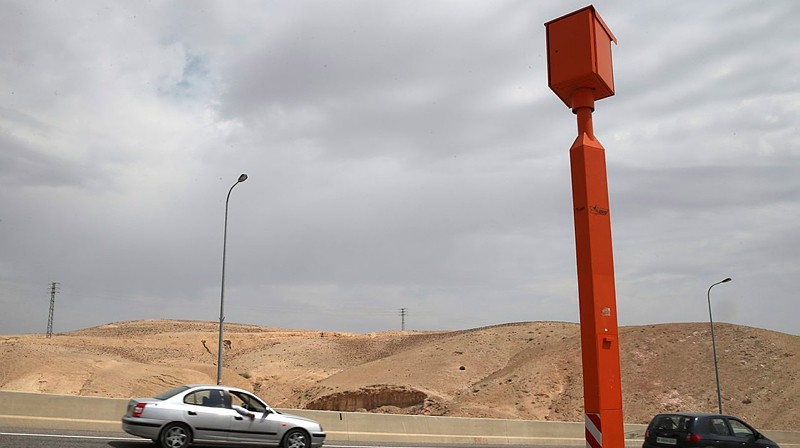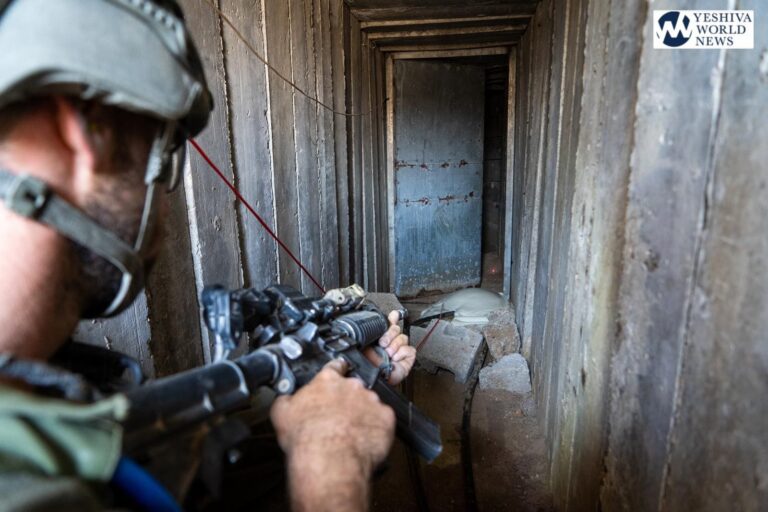After the reliability of speed cameras in Israel proved to be very problematic in court, the police will have to replace the cameras with another solution. Until then, for two years, there will be no summonses.
Due to the many legal problems and the inability of the police to prove the reliability of the speed cameras, ‘A3’, Israel’s most expensive speed enforcement project, is expected to be replaced by a new enforcement project, which may be less advanced but more reliable. The result, in the meantime, the police have not sent speeding summonses from the cameras for six months, and it is expected to change the cameras within two years.
According to the report in Yediot Achronot, the Israel Police has begun a process of checking several new speed cameras over recent weeks, cameras that are supposed to replace both the ‘A3’ model cameras that are installed in boxes on poles nationwide – along with the ‘Dvora’ speed cameras installed on the roofs of the police vehicles – which are also problematic in terms of reliability . According to reports, police are refraining from summoning motorists to court based on the documentation from the cameras mentioned as their reliability has been proven to be questionable.
This reality is a real blow to the department, as the summonses from speeding tickets generate significant income for the department.
According to the report in Yediot, the police are examining the use of a radar camera manufactured by the Dutch GATSOmeter company. The reason is that some of the existing infrastructures in Project ‘A3’, for example, the camera itself, are manufactured by the same company. Thus, the police want to install the radars on the basis of the existing ‘A3’ system and to adapt it to existing units, electrical and communication systems, to reduce the replacement cost and speed up the installation time.
The Ministry of Public Security’s contract with Malam-Team for NIS 350 million to operate the ‘A3’ system was set in advance for 12 years and will end only in 2021, when the system is supposed to be returned to the state. The system is also used by the police to enforce compliance with red light traffic signals at intersections, and it is possible that its operation in this format will continue for at least the next few years.
Israel Police responded to the report: “Unfortunately, this morning we were exposed to the publication of inaccuracies about the ‘A3’ cameras, in a manner that may be inaccurate regarding drivers and road users. As part of the ongoing struggle against road accidents, the Israel Police, which is at the forefront of technological enforcement, operates a wide range of technological means and is constantly examining the addition of technological enforcement measures that can help reduce casualties and traffic accidents on the roads.
“Contrary to what was claimed and mistakenly reported this morning, there is no intention of replacing the ‘A3’ system with another system, and there was no request by the Israel Police to any commercial company regarding new enforcement measures. As we mentioned in the past, upon completion of the process, a decision will be reached in coordination with the State Attorney’s Office regarding the continued issuance of summonses based on the system.
“It should be noted that any attempt to link one enforcement measure to the other by drawing erroneous and distorted conclusions is wrong. We will continue to enforce traffic laws with an emphasis on life-threatening traffic violations through a wide range of methods and means, all in order to save lives”.
(YWN Israel Desk – Jerusalem)







2 Responses
Why is it that Israel is so forward in many technological areas but such a third world country in others? Countries with sophisticated justice systems use speed cameras the world over. The technology is there, it just needs to be used properly.
Post the speed limits on main roads and highways at the safest 85th percentile speeds of free flowing traffic under good conditions to maximize safety and reveal that speed cameras were for-profit rackets – not safety programs.
James C. Walker, (US) National Motorists Association